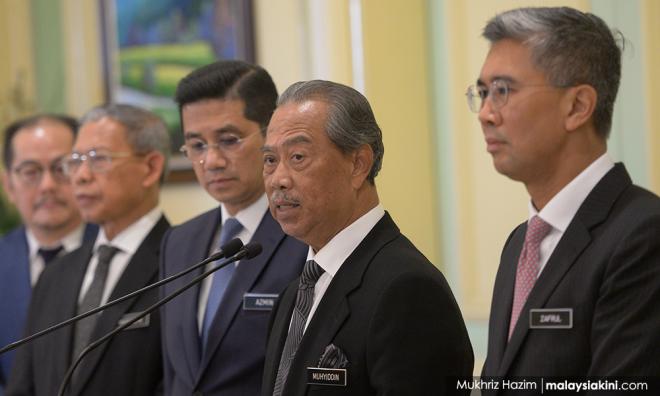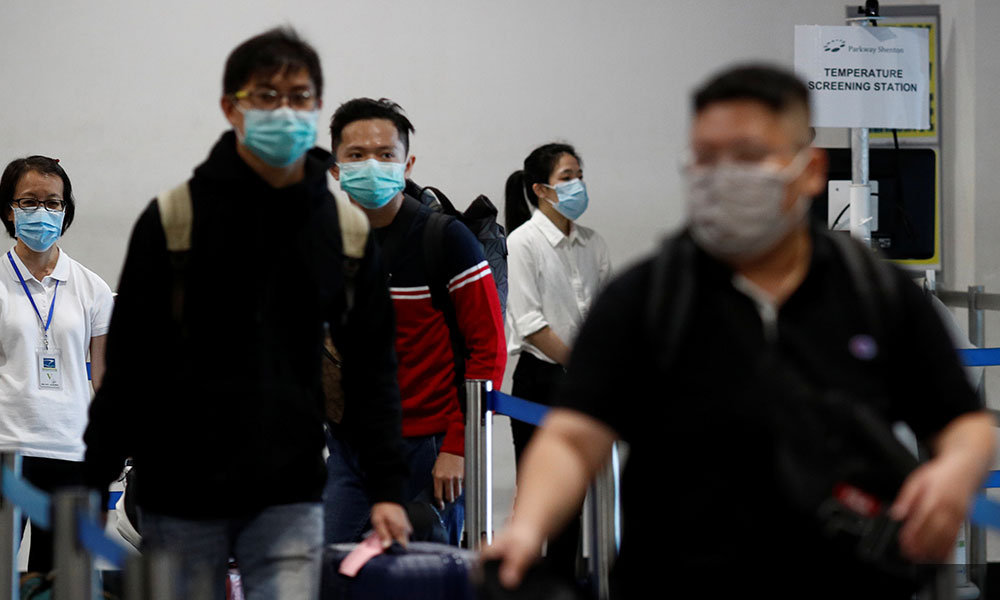
This virus could doom us. Other than terrorism and all-out military warfare, an influenza pandemic like coronavirus has catastrophic consequences of taking millions of lives.
But none of us would believe it.
Unlike a military war, a virus has no human dimension. Our eyes cannot see what a coronavirus is – and we only believe what we can see. There are no missiles that could pierce through our lungs; there are only microbes. Though the number of infections and deaths are increasing at an alarming rate, we are not bothered. What is not seen is not real; this too shall pass like a bad dream.
We continued going to work, travelled to meet friends, and maintained our filthy ways. How could a small, invisible, undetectable virus change our grand, superior, well-prepared plans?
History wouldn’t scare us. Not the Spanish flu of 1920 that killed more than 50 million; not the Black Death of 1360 that killed more than 25 million; not the Asian flu of 1957 that killed more than two million; not even the H1N1of 2009 could scare us.
In the legendary novel, The Plague, Albert Camus described this human stubbornness in the face of a virus. The people thought it was “impossible” that a virus could get to them, even when a quarter of the city has already perished from it.
How could an uncivilised and primitive virus overwhelm a society of smartphones and skyscrapers?
Strong leadership and swift action
To have even a remote chance of succeeding against coronavirus, we need strong leadership, swift action, and seven seas of trust and cooperation.
Countries that took preventive measures from as early as December 2019 stood out in keeping the infection numbers low. In this, Taiwan and Singapore are regarded as international role models.
All arrivals from Wuhan to Taiwan were subject to rigorous health screenings. The Journal of American Medical Associated stated that Taiwan implemented a list of 124 “action items” early, including border controls, school and work policies, public communication plans, and resource assessment of hospitals.
Taiwan was also quick to embrace Big Data analytics to map individuals suspected of infection. They integrated the national health insurance database with the customs and immigration database. This allows authorities to detect cases in real-time, based on their travel history and clinical symptoms.
People who have a high risk of infection were quarantined for 14 days, and they were tracked through mobile phones on where they are. People who have a low risk of infection received an SMS for quick immigration clearance. These were done through a QR code scanning.
Predicted to have the highest number of imported cases due to the high daily influx of Chinese visitors, Taiwan’s coronavirus infections remained low and contained.
Singapore acted quickly
Singapore was even more careful. The health authorities were aggressive in testing all influenza-like and pneumonia cases, besides applying assiduous contact tracing of those who are infected. Harvard University estimates that Singapore detects almost three times more cases than the global average. They have even developed a test for antibodies that may linger after the infection subsides.

The unending process of testing and tracing involved all government authorities – they are also free. Self-employed people were even compensated S$100 per day during their quarantine.
The World Health Organisation lauded Singapore’s containment strategies as being exemplary to the world of public health.
When every responsible government was taking vital steps to minimise the outbreak, we were in the middle of the most heinous and unnecessary power-grab in history.
What our politicians really care for
The process of changing from a Pakatan Harapan to a Perikatan Nasional government cost us two weeks – two very vital weeks, we now know. The most sinister members of this coup planned this for a few months. This means that the most vital months of thinking about how to solve an international crisis were, instead, used for petty and self-interested politics.
Not only had we wasted nearly a month doing nothing substantial to curb the virus spread, but we have also ended up with a fragmented and disparate government consisting of distrustful members.
It comes as no surprise, therefore, that they are still playing politics when the death toll is registering red every single day.
Our home affairs minister was still trying to woo PKR members to defect and join the new government. Our prime minister was still watching over his shoulders for his party’s secretary-general, who he later sacked. Our government even withdrew allocations of Pakatan Harapan constituencies to further consolidate power.
All opposition state leaders were also not invited to a crucial coordination meeting in Putrajaya about the coronavirus.
It makes you wonder: how much of our ministers’ time is spent on politics, and how much on the welfare of the people?
Sunday was no barrier to Sheraton; but Sunday was a barrier to emergency meetings to save the country from the most dangerous pandemic in our lifetime.
Every crisis reveals the true face of its leaders. I am ashamed even to look.
JAMES CHAI is a legal consultant and researcher working for Invoke, among others. You may reach him at jameschai.mpuk@gmail.com. - Mkini



No comments:
Post a Comment
Note: Only a member of this blog may post a comment.